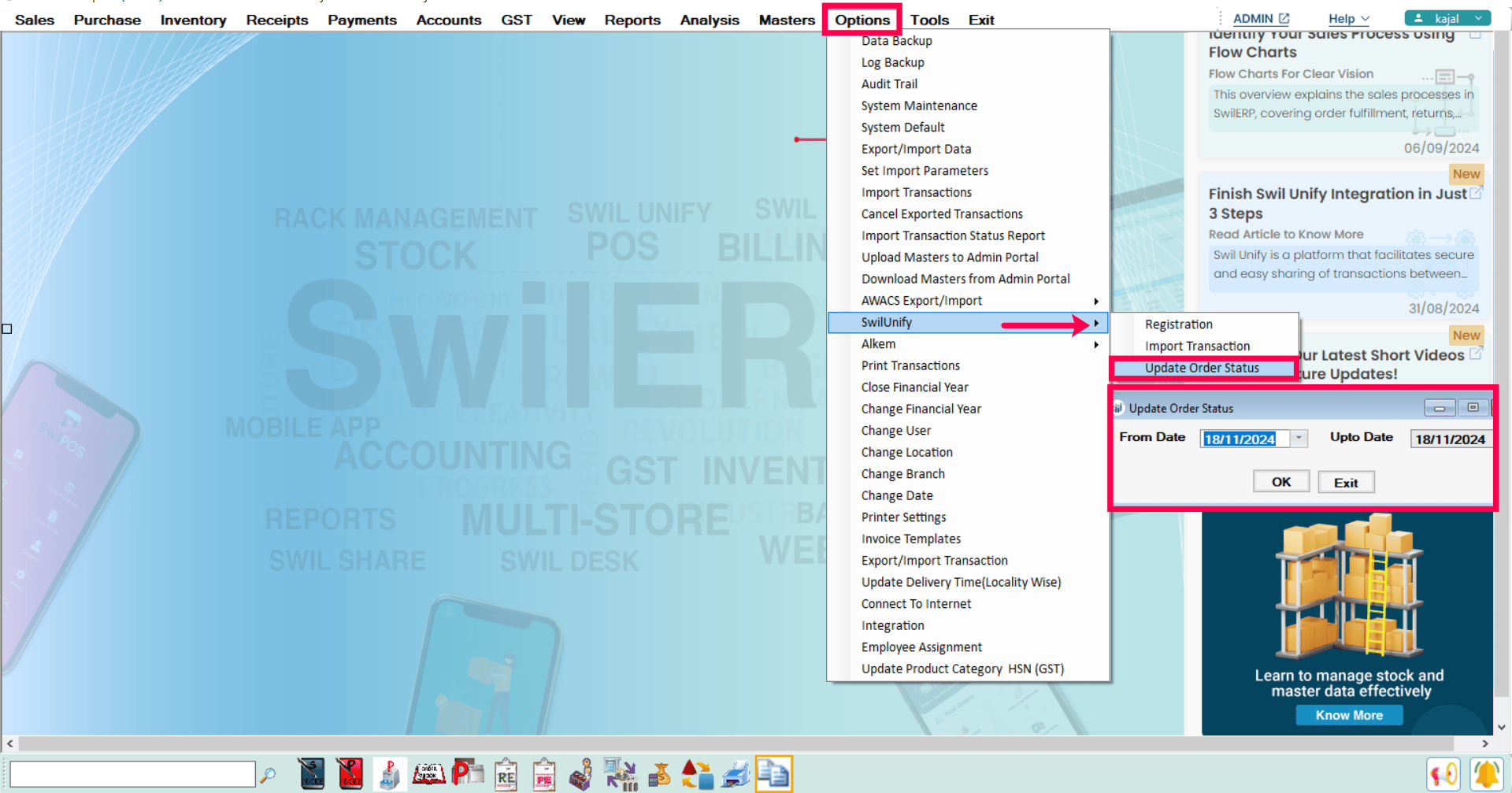Track Short Orders in Swil Unify
How Can You Easily View Short Orders in Swil Unify
The Short Orders feature in Swil Unify helps businesses quickly identify orders that can't be fully completed because of low stock. It highlights these partial orders on the order dashboard, making it easy to take action, like restocking or letting customers know about delays. To use this feature, you first need to set up the Update Order Status in SwilERP, which ensures that all short orders show up in Swil Unify. This simple process helps improve inventory management and keeps things running smoothly.
Step 1: Configure and Activate Order Status Update Settings in SwilERP
Reference Image:
 SwilERP Dashboard Window
SwilERP Dashboard Window
Step 2: Login in Swil Unify to next Process. (Access the Swil Unify login here)
You can access the login screen here.
Enter your registered email address in the provided field.
Input your password in the password field.
Now, click on the "Login" option.
Reference Image:
Navigating to Short Orders:
- After logging in, you will be taken to the Dashboard screen.
- Locate the Short Orders option on the dashboard.
- Click on Short Orders to view all pending or partial orders.
Reference Image:
- Party Name: The customer or client associated with the order.
- Invoice No.: Unique number assigned to each order.
- Invoice Date: The date the order was created.
- Total Items: The number of items in the short order.
Reference Image:
- Shows detailed information about an order for easy tracking and management.
- Includes party, invoice, and item details.
- Displays ordered and processed quantities.
Reference Image:

|


|
Related Articles
Integrate Swil Unify with SwilERP
How to Integrate Swil Unify with SwilERP Swil Unify is a platform that facilitates secure and easy sharing of transactions between businesses. It allows you to upload your transactions and easily share and receive them. Swil Unify retrieves ...Received Transactions in Swil Unify
How to Receive Transactions With Swil Unify Receiving Transactions with Swil Unify With Swil Unify, users can conveniently receive transactions shared by the SwilERP System. Here are the transactions you can receive: Purchase Invoices Sales Orders ...How to Import CSV in Swil Unify
Step-by-Step Guide to Import CSV Files in Swil Unify Importing CSV files in Swil Unify makes managing data easier. It lets you upload large datasets quickly and efficiently. This guide offers simple steps to help you import your data smoothly, saving ...Sent Transactions With Swil Unify
Effortless Transaction Sending with Swil Unify With Swil Unify, users can conveniently send transactions shared by the SwilERP System. Here are the transactions you can send: Sales Invoice Purchase Order Sales Challan Purchase Return Note: When you ...Key Features and Functions of Swil Unify Dashboard
How Swil Unify Dashboard Works: Key Features and Functions In the Swil Unify dashboard, you can view received and sent transactions, along with reports, user emails, and subscriptions. The dashboard also displays the Unify transaction chart. In this ...